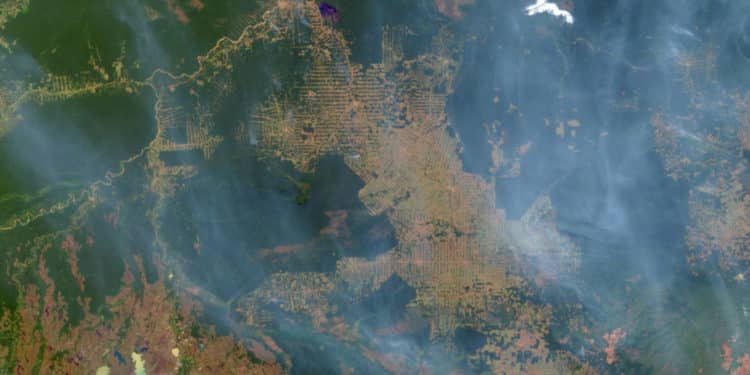Brazilian scientists reported in November that 3,769 square miles of forest cover had been lost in a one year – the biggest decline in a decade.
The New York Times reports that President Jair Bolsonaro “who has long argued that conservation policies stymie economic development, has been disdainful of the environmental measures that reduced the Amazon deforestation rate between 2004 and 2012. His government has weakened enforcement of environmental laws by cutting funding and personnel at key government agencies, and it has scaled back efforts to fight illegal logging, mining and ranching.”
At the same time, more than 150 environmental activists were murdered in worldwide last year, according to one report.

When laws are weak or ignored and informers risk their lives, whistleblower laws can offer protection. The National Whistleblower Center announced a new program Monday to help environmental whistleblowers worldwide get lawyers, remain anonymous and get rewarded. The program will focus on the logging and fossil fuel industries.
Corruption and organized crime sound like urban problems. But illegal logging by criminal gangs is a well-established barrier to ending deforestation. It happens in countries with weak rule of law and systemic corruption, according to Interpol, the international law enforcement agency. The tropical forests are vast and often remote, thus hard to monitor.
It’s worse than not pretty, according to an Interpol report. “Corruption related to the illegal trade in forest products essentially leads to biodiversity loss and ecosystem degradation, which in turn damage wider development efforts.”
Here’s where whistleblower programs could help. Insiders willing to share information have always had a role to play in fighting corruption. And, many U.S. whistleblower laws apply to companies and activities overseas. In 2015, Lumber Liquidators was fined over $13 million for buying wood that had been illegally logged in Russia.
The U.S. laws bring an important tool to the table – anonymity. Activists working in countries with high levels of corruption were most likely to be killed or jailed, according to the Global Witness report.
A newly launched campaign from the National Whistleblower Center wants to help them. From the NWC:
The Climate Corruption Campaign will be the first sustained effort to educate potential whistleblowers in the fossil fuel and industrial logging industries about their rights under whistleblower laws, including to keep their identities confidential. It will help these whistleblowers secure qualified attorneys, participate in high-impact prosecutions and win financial rewards when those prosecutions are successful.
More here from Globe Witness:




